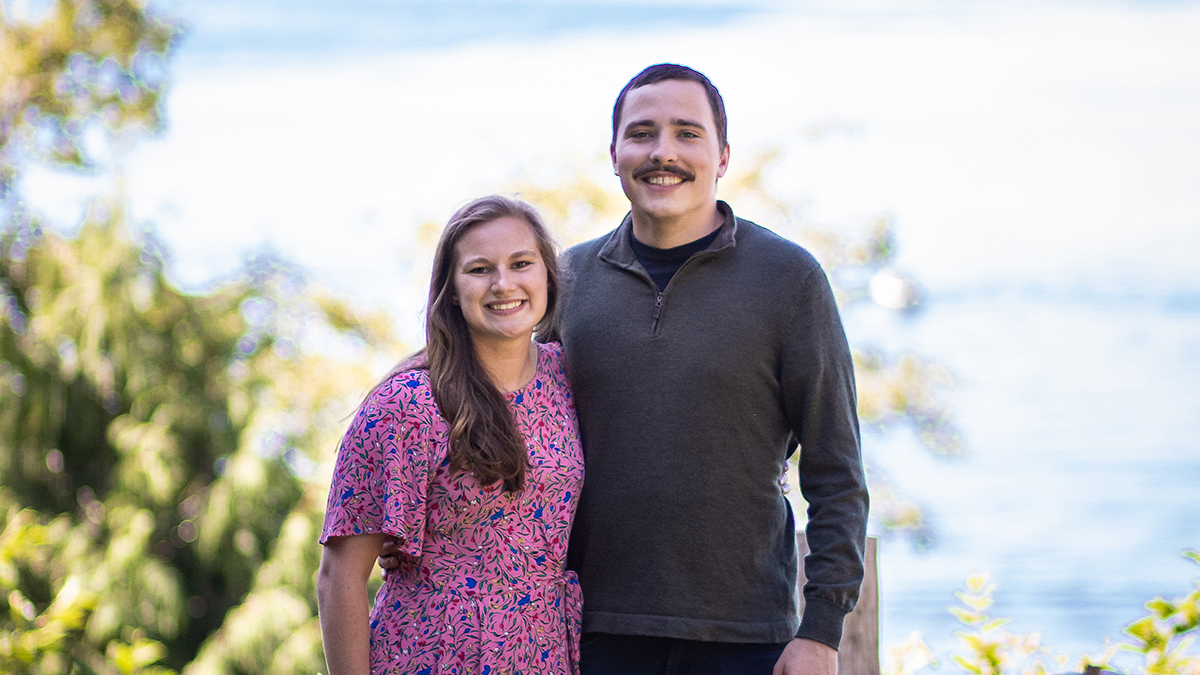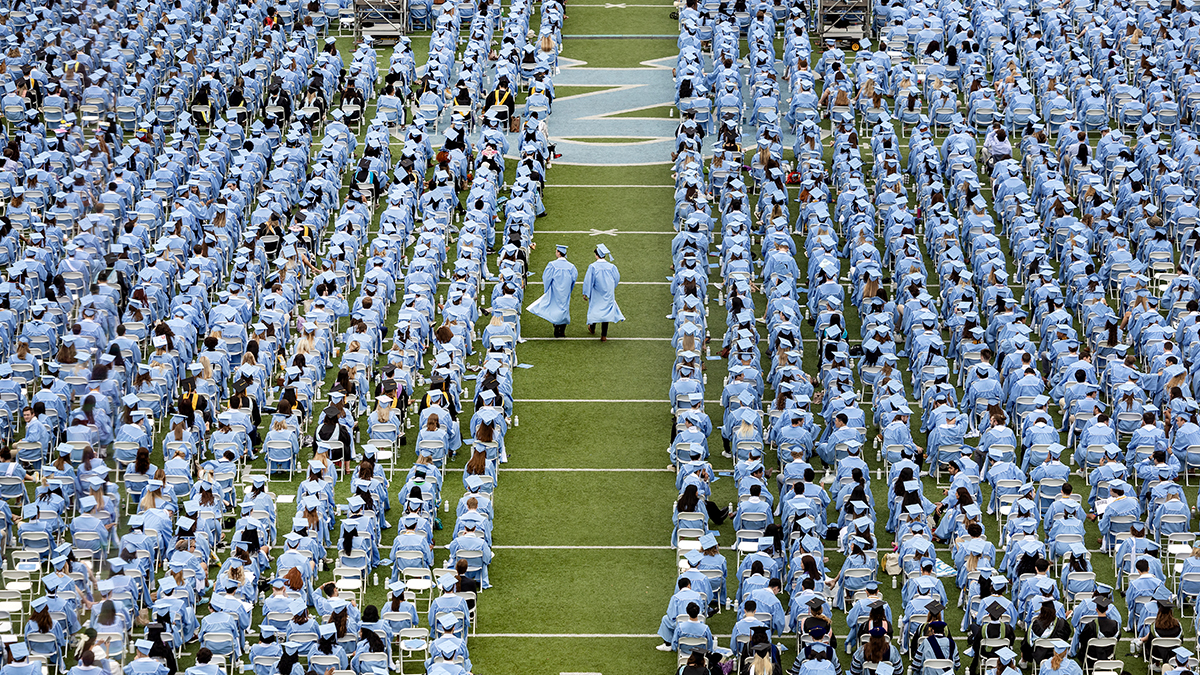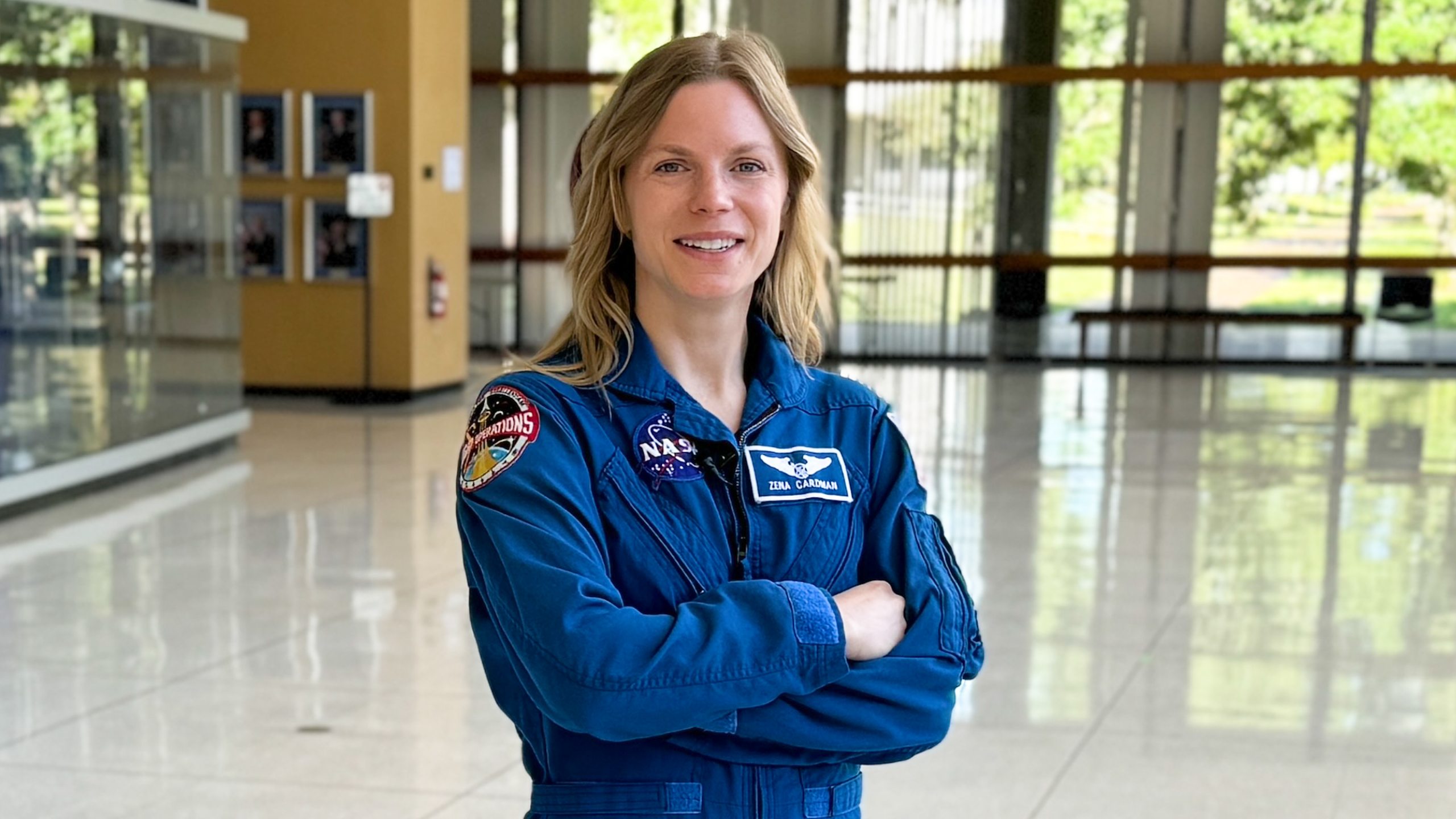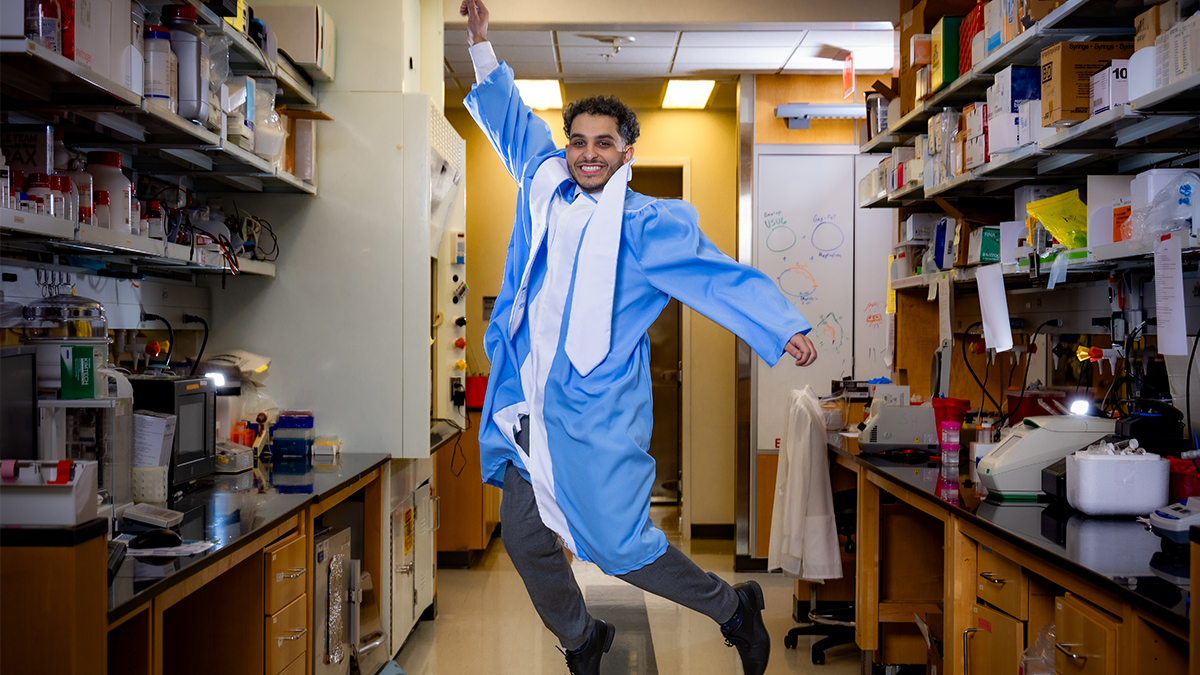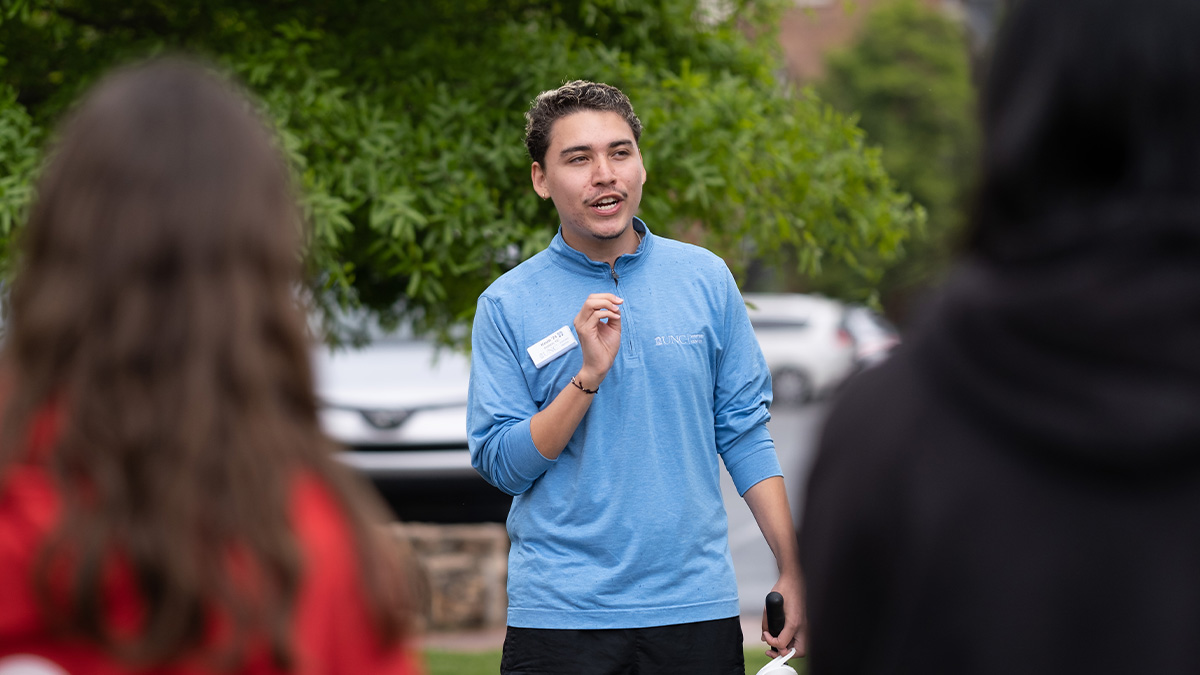2023 Tanner Awards for Graduate Teaching Assistants
The instructors share their inspiration for leaving their mark on their fellow Carolina students.
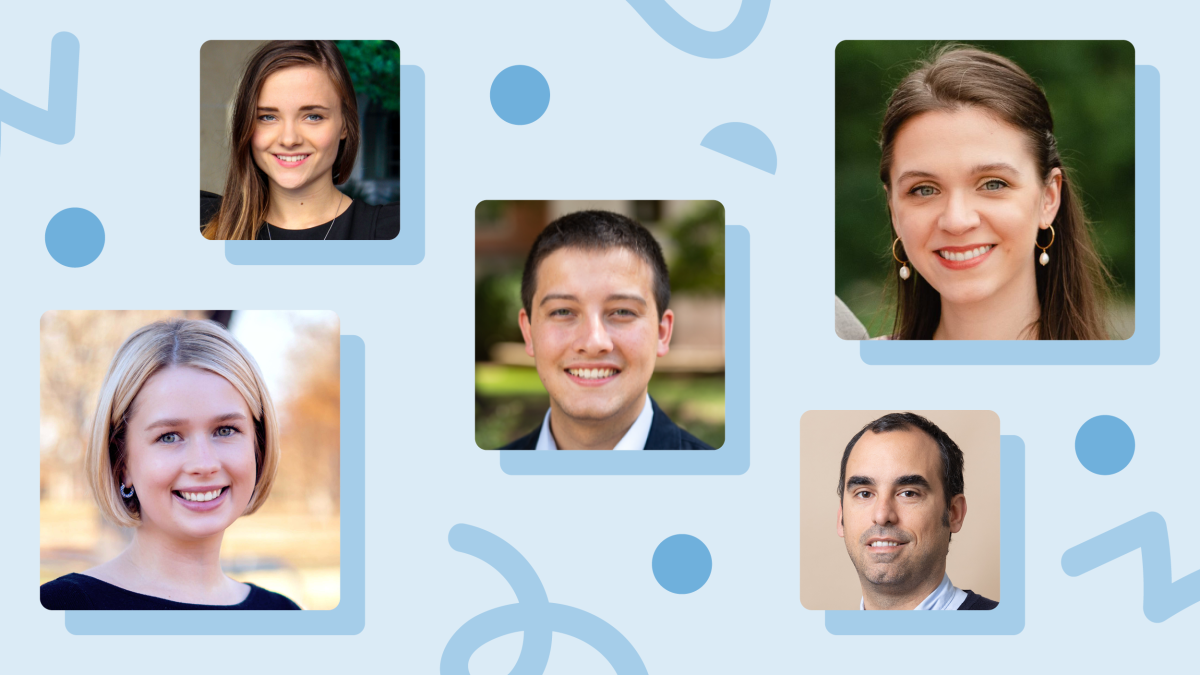
To view a list of all the winners, see The Well’s 2023 Teaching Awards coverage.
In 1990, the University expanded the purview of the Tanner Awards to recognize excellence in the teaching of undergraduates by graduate teaching assistants. Each of the five winners receives a one-time stipend of $5,000 and a framed citation.
Seth Alexander
Department of medicine, School of Medicine
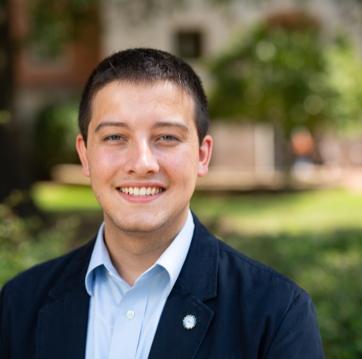
Seth Alexander
Who was the best teacher you had and why?
I’ve been fortunate to have a lot of great teachers and mentors through the years, especially here at Carolina, both in the College of Arts and Sciences and the School of Medicine. I had one English teacher in high school, though, who will always stand out to me. Ms. Flexon made her classroom a space where it was OK to be yourself, fail — and therefore learn — without fear and always find ways to improve. Although I went into the sciences, I remember the lessons she taught me regularly.
What does it take to be a good instructor in 2023?
I think we’re all still figuring this out, especially since the landscape of teaching is changing so quickly. One of the most important things is to make your topic applicable to students’ lives; put yourself in their shoes and ask why it’s important to know something. Sometimes this means connecting more abstract concepts to practical examples. Aside from that, it’s being open to support students where they need it. We’re all working through 2023 together, and sometimes you need to be a listening ear or a friendly face for your students.
Tell us a story about something creative you’ve done to engage your students.
In the courses I teach, students often want to pursue careers in health care or other related fields. I take a case-based learning approach to make assignments more engaging. I give students realistic medicine or medicine-adjacent problems to think through in groups where they can help each other. These cases may resemble difficulties you or your family members may have experienced; as a result, students can draw on familiar, lived experiences and apply course concepts to make the topics come alive. Students often use this as an opportunity to dive into even more detail than I asked of them to understand the problem at hand and the related scientific principles.
Elizabeth Baldwin
Department of nursing practice, School of Nursing
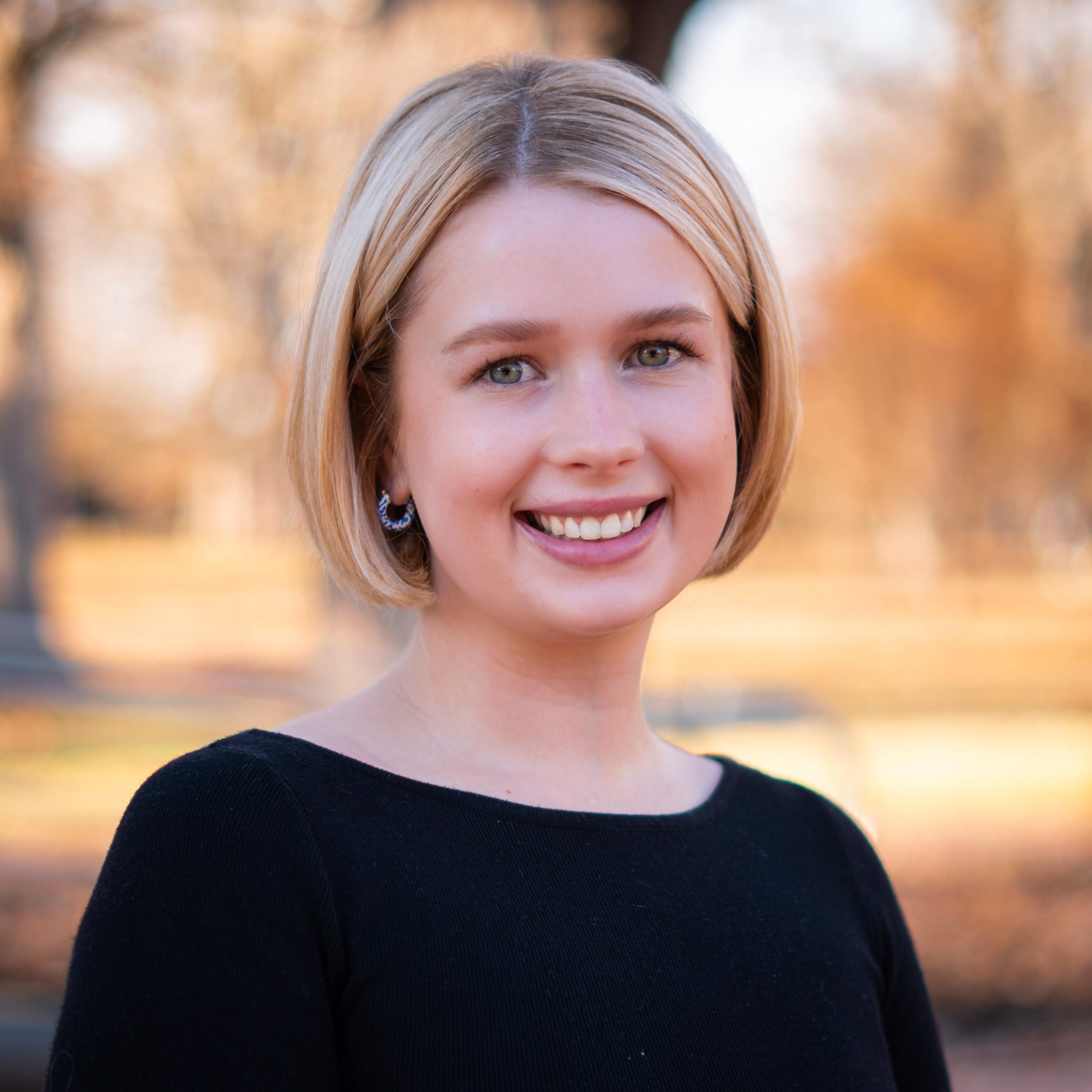
Elizabeth Baldwin
Who was the best teacher you had and why?
Before I was accepted to the School of Nursing, I met Dr. Dorothy Wood, who taught my undergraduate microbiology course. On the first day of class, she read my last name and took a second look at me. She eventually realized that my father taught her biology course when she was a graduate student at Carolina. I went on to have one of the most positive learning experiences with Dr. Wood that semester. Her class challenged me in the best way, and I’m forever grateful. While I did not go on to become a biology professor to continue the familial domino effect, I was left to contemplate the significant roles our teachers play in our lives and the responsibility that comes with it.
I would be remiss not to mention some exceptional teachers from the School of Nursing. A research class I took with Dr. Maureen Baker changed my opinions on research and likely shifted my trajectory at the school. Dr. Baker came to class every day with an upbeat attitude, engaging lectures and an astounding knowledge base, which she used to guide us through the semester. I would also like to mention and thank Dr. Coombs, Dr. Sharpe, Dr. Vernon-Platt, Dr. Wehner and Dr. Palmer. Thank you for your wisdom, knowledge and continued support of UNC SON students.
What does it take to be a good instructor in 2023?
I believe a good instructor in 2023 will have several key qualities. We need to be able to listen, adapt and meet the changing needs of our students. Instructors are an enduring presence for the students as they move through their time at the University. This position comes with significant responsibilities. I believe a good instructor can support their students while being flexible and adapting. Instructors can enhance their ability to support students by increasing their skills, including taking training offered by the University, such as Mental Health First Aid, Safe Zone training, UndocuCarolina and many others. In a post-pandemic world, we must be resilient as we work to provide our students with the best learning experiences possible while at Carolina.
Tell us a story about something creative you’ve done to engage your students.
While working as a teaching fellow at UNC SON, I had the opportunity to assist in the development and deployment of the first simulation experience for undergraduate nursing students following the pandemic. These simulations truly represent the best that UNC SON has to offer; we use high-technology, high-fidelity mannequins to simulate real-world patient interactions. In working to develop this simulation, we were able to get creative and create scenarios that would inspire critical thinking among the students. When the simulation rolled out, we were so impressed with the engagement from the students and their commitment to the scenario.
Abigail Newell
Department of sociology, College of Arts and Sciences
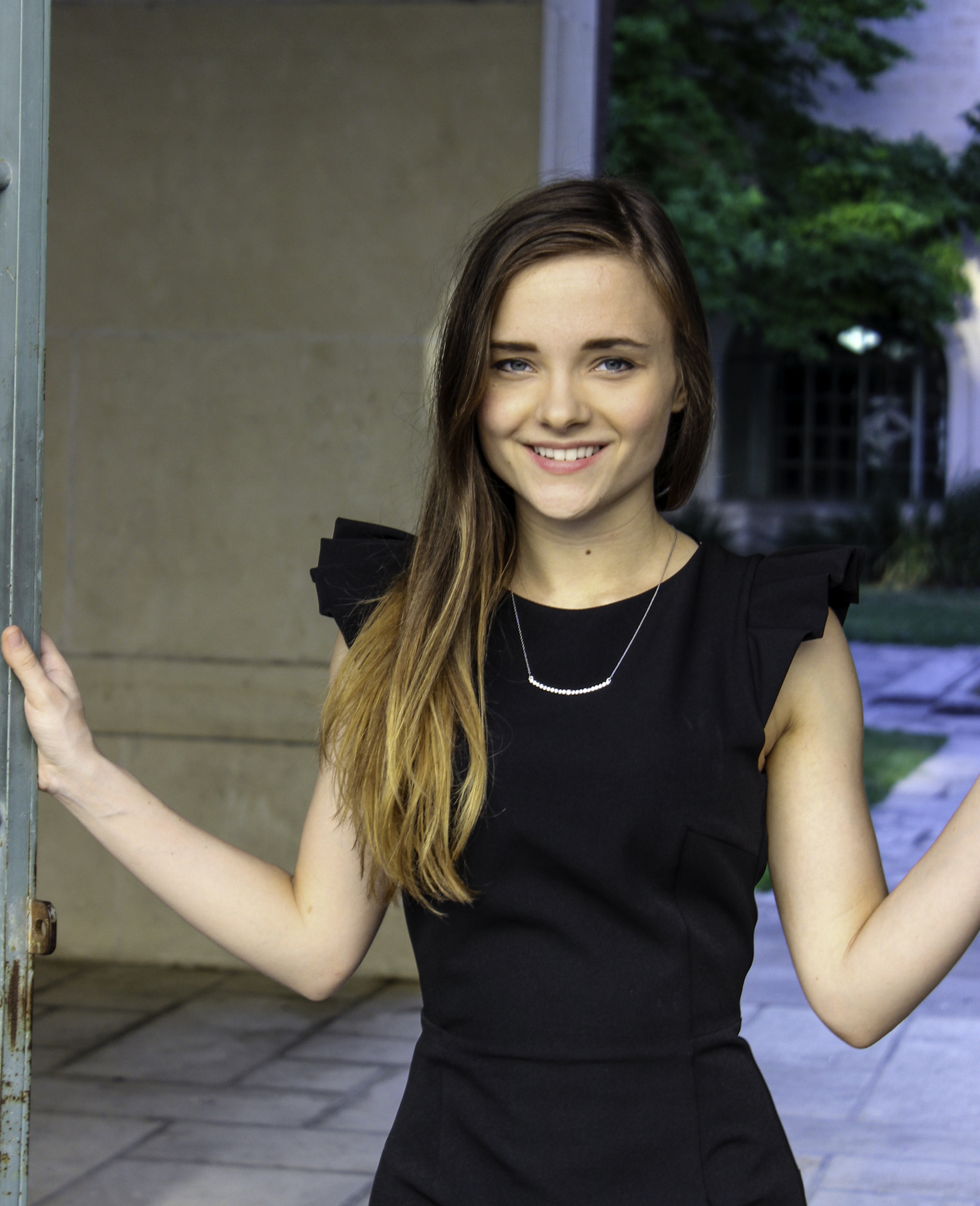
Abigail Newell
Who was the best teacher you’ve had and why?
The best teacher I’ve ever had was my high school history instructor, Dr. Eroica Poulakos. She treated us like junior scholars and demanded excellence from us, even as first years in high school. She taught us how to create research questions, craft compelling arguments and analyze primary documents. She even taught us how to search for academic articles on JSTOR, which I am incredibly grateful for today! Every Friday, she held an art salon and guided us through historical analysis of artwork from the Renaissance era to modernism. She taught us how art reflected the world and its history. By challenging me intellectually and believing in my ideas, she raised the expectations I had for myself and built a lifelong appreciation of art and literature.
What does it take to be a good instructor in 2023?
In 2023, as ever, building community is essential. Community-building means working together in learning and building relationships. Beyond the dreaded group presentations, students need time to check in with one another, laugh and commiserate. I also think this means providing the opportunity to learn from one another. Students learn more from hearing and watching each other work than from one instructor alone. As educators, we must always remain open to learn from students, too. We don’t need to know everything, but we need to listen to one another.
Tell us a story about something creative you’ve done to engage your students.
Sociology can make the world seem unchangeable. In my Sociology 124 course on sex and gender, students learn about the sociological perspective of “doing gender” — gender is something we do and achieve, rather than an innate biological characteristic. We learn that people are socialized to abide by gender rules and punished for breaking them. But gender is also something that we do because it feels good. After this discussion, I challenge students to do something fun next weekend. What makes them feel good? How can they play with gender? What does joy look like for them? On Monday, we share what we did and why it felt good. Some of us painted our nails, listened to our favorite album or went for a quiet hike. We drafted a list of activities that make us feel good about gender in GoogleDocs to revisit throughout tough times in the semester. I hope this exercise shows the flexibility of gender and the pleasure we find it in. Most importantly, we get to practice resilience and find joy in times of struggle together.
Rafael Núñez Rodriguez
Department of Romance studies, College of Arts and Sciences
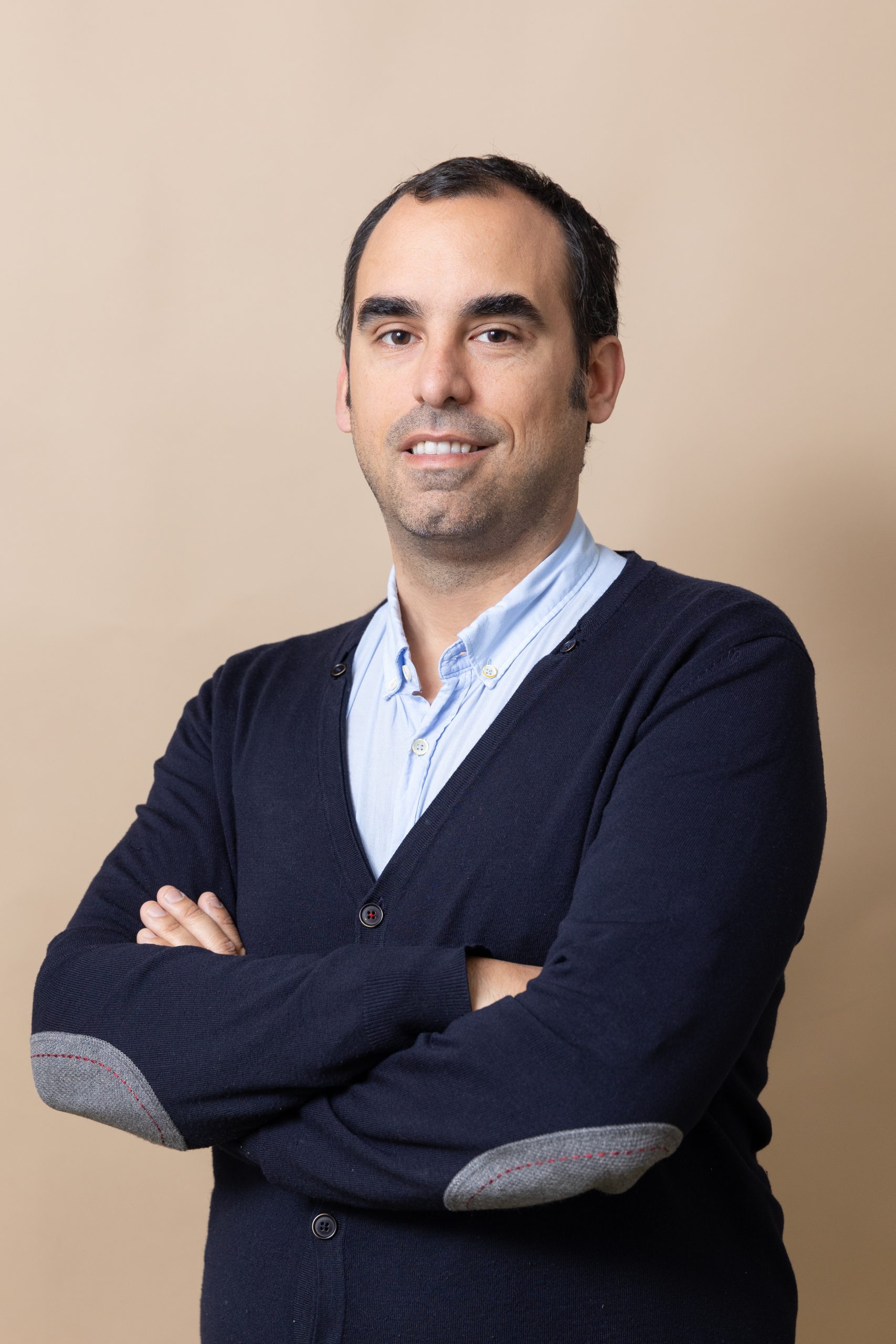
Rafael Núñez Rodriguez
Who was the best teacher you ever had and why?
This is challenging to answer because I have always had excellent teachers. Professor Irene Gomez Castellano [in the College’s romance studies department] helped me to see academic life with prudence, rigor and love while I was pursuing my doctorate. From day one, she has made me a better person and scholar. It was my high school teacher, friend and family member Amelia de Paz Castro, who made me study literature, for whom I’ll be eternally grateful. Jesús Llanes, Fernando Delgado and Mariano Gomez also taught me to love the humanities in high school. At the University of Huelva, Spain, I was taught by Professor Victoria Galloso and Professor Eloy Navarro. They helped me grow until I transferred to the University of Oregon. Mayra Bottaro was the teacher who influenced me most during my time there, helping me to adjust to the American educational system. It was also professors like Luis Rivero, Antonio Ramírez, Juan A. Estévez, Luis Gómez Canseco, Valentín Núñez and Elide Pitarello all of them made me mature and love this field. Thinking about my admiration and love for them, I hope I can do the same for someone.
What does it take to be a good instructor in 2023?
The act of teaching is an act of love. The term “education” comes from the Latin “educere,” which means to guide through terrain that can be scary and bewildering. I think the student is at the center, and I am only accompanying them. As a companion, you adapt to their needs and guide them. That is why I love teaching, listening to my students and adjusting to their needs in order for the students to give themselves to me as their guide.
What’s something creative you’ve done to engage your students?
In my Spanish for business class, we did practical exercises. We designated a company called “Panamericana.” The students worked in two groups in class to offer practical solutions to real problems on topics such as sexism, workload or gender equality. In that way, they started preparing for their future jobs.
Alexandra Wojda-Burlij
Department of psychology and neuroscience, College of Arts and Sciences
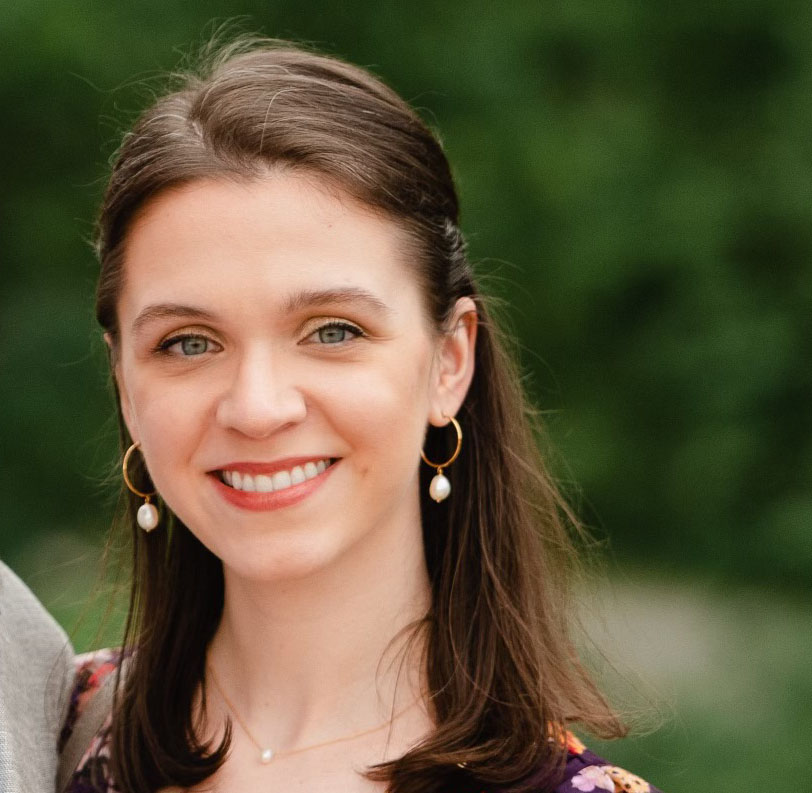
Alexandra Wojda-Burlij
Who was the best teacher you had and why?
I’d like to take somewhat of an unorthodox approach to this question and comment on two of my graduate supervisors, both of whom embody what it means to be a great teacher. These are my research adviser, Dr. Donald Baucom, and Dr. Jeannie Loeb, the head of undergraduate studies in our psychology department. I worked with Dr. Loeb in my very first semester at Carolina in her 400-student Intro to Psychology course. Her command of the room was unlike anything I had previously seen! Her playfulness, humor and use of active-learning strategies with such a large group was infectious; it was amazing to see so many students so engaged in the class — myself included! Additionally, Dr. Baucom has influenced the way I think about teaching, both in terms of content and process. By observing his teaching style, I learned so much about how to attend to the various ways in which students learn and digest new material. He and I have also had countless discussions about the importance of principle-based learning and how to ground students’ thinking within a theoretical framework. Quite simply, my experiences with Drs. Loeb and Baucom created within me a sense of “aspirational teaching.” I could only hope to be as engaging and impactful with my own students!
What does it take to be a good instructor in 2023?
Throughout the pandemic, students have had to contend with numerous stressful circumstances — for example, the switch to online and then to in-person — learning while managing their personal lives at home. During this time, I have found several things to be vital. Bring the energy: Students appreciate when you show not only your expertise, but also your passion for the subject. Even while they may be managing difficult circumstances elsewhere in their lives, they’ll feel your excitement. Your energy can be activating for them. Second, be flexible: Students remember when you work to help them stay on top of assignments and understand the class material, especially when they have unique needs. Finally, show genuine interest in them beyond the classroom: It’s important for students to feel valued. This can be accomplished in several ways, ranging from taking a “pulse” of the room at the beginning of class to offering students the chance to discuss other topics during office hours (e.g., graduate school, careers in your field). Combined, these strategies show that you care — and that their presence matters.
Tell us a story about something creative you’ve done to engage your students.
The majority of my teaching has focused on the topic of psychopathology — and to be a good clinical psychologist is to be a critical thinker, one who is able to conceptualize and understand a person’s functioning before proceeding with an appropriate treatment plan. To facilitate this style of thinking in my students, I take a developmental perspective. Throughout the semester, as they learn the nuances of various psychological disorders, they work on several case studies. I ask them to substantiate a given diagnosis for a mock client, present their understanding of how the disorder may have developed over time and develop a possible treatment plan. This series of assignments prepares them for a final group project where they give a clinical presentation on another “patient” with an unknown disorder. This project allows them to flex their newfound understanding of disorders and rely on their peers — not a textbook — for assistance. It also simulates what it’s like to work collaboratively with other professionals in clinical settings — i.e., reviewing cases aloud, offering consultation, assisting with diagnosis and intervention, etc. Ultimately, the goal is to have students feel they have increasing autonomy and command over the course material; this scaffolded approach plays such an important role in my teaching to help them accomplish just that.
